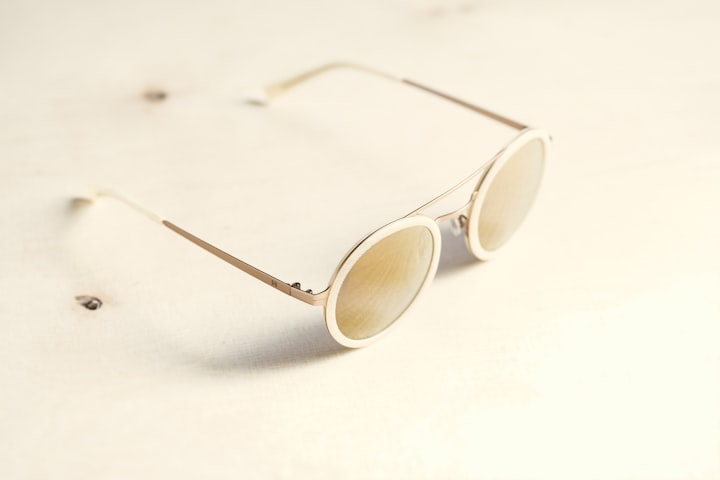
If I could impart only one piece of ophthalmic wisdom, it would be this: Try not to press on your eyes so much.
I see it every day. Some people do it when they're stressed. Others rub their eyes vigorously. But even worse is what happens when I'm not around to see: I worry what you're doing to your eyes at night.
This is usually discussed with glaucoma and glaucoma suspect patients; however, I suspect we should all keep this in the back of our minds as a possible risk for our future ocular health.
It’s easier for me to explain by sharing what I’ve heard hundreds of times, as an ophthalmic tech and scribe. That’s right: I’m not a doctor, or a nurse, or a journalist. I’m just sharing a generic discussion I’ve heard repeatedly, which I believe everyone should hear. Don't worry, it's no secret.
Ophthalmic Mages, get your Glaucoma Bingo card ready as I describe some findings:
- D-OCT and GCC abnl OD>OS.
- VF 24-2 abnl OD>OS (deep sup>inf arcs approaching center OD, early inf nasal OS).
- C/D 0.85/0.55.
- IOP not as important in this scenario, given that 30-40% of all glaucoma patients never have high eye pressure in the office.
For Ophthalmology Muggles, the doctor's explanation of these findings typically goes like this:
Doctor: “Hmmm.”
Patient: “...What?”
Dr: “Your test results suggest optic nerve damage, right more than left. It shows up on the imaging, and I can see it myself when I look in your eyes. This has led to peripheral vision loss, which is mapped out on your visual field test.”
The patient is shown the VF results.
Pt: “Oh my. How come I don't notice this missing vision?”
Dr: “You can lose a lot of peripheral vision before you start to notice. Your brain compensates and adjusts over time, so you never really see what's missing. But since your loss is so unilateral, if you block one eye at a time and just focus on your peripheral vision..."
The patient experiments.
Pt: "...Ah. I think I see what you mean. This is permanent?"
Dr: "Yes, and the pattern of vision loss is classic for glaucoma. But why is it so much worse in your right eye? Have you had blunt trauma there? A black eye?”
Pt: “No…”
Dr: “Any infection or inflammation in that eye?”
Pt: “Nope.”
Dr: “Hmmm… well… how is your sleep position at night? Do you sleep on your sides?”
Pt: “Um, yes, my right side. Probably 90% of the time.”
Dr: “And is your eye pressing on anything while it’s down?”
Pt: “The pillow I guess? Sometimes with my hand underneath my eye, too.”
This conversation happens All. The. Time.
If we think about this on an instinctive level, having anything press against your eyes sounds like a bad idea, right? This is a sensitive, fragile optical system, providing us with a powerful ability to interpret and interact with our world. Why would we do anything to mess with that?
Let's add some science to that common sense.
Glaucoma damages the optic nerve cells, ultimately leading to cell death and associated vision loss. The vision loss usually starts in the periphery, but glaucoma can cause complete permanent blindness if left untreated. This is often associated with intraocular pressure (IOP) although that may never measure high in the office (I'll explain momentarily).
When there is high eye pressure, the fluid inside the eye is pressing against the inner walls, so to speak. The weakest part of the wall, the part most likely to 'give', is in the back where a hole allows the optic nerve in. This entrance is covered with a net of fibers called the lamina cribrosa, and the optic nerve cells enter through the holes between the mesh-like fibers. Pressure on that weak point of the eye essentially causes those cells to "choke" and die off over time.
Of course, there is more than one force at play: the eye pressure, the blood pressure, and the cerebrospinal fluid pressure. Blood pressure is lowest at night, while eye pressure is highest. This difference in body fluid pressures can make things worse, because the cells are getting 'choked' at the exact same time that they are already receiving less oxygen from less blood flow. If someone has normal eye pressure but very low blood pressure at night, the pressure difference may still be similar to someone who has high eye pressure but normal blood pressure. Either way, the optic nerve suffers.
Eye pressure is higher when lying down, whether awake or asleep. If lying on one side, the eye pressure is highest on the side that is down. Given the above factors affecting the optic nerve at night, it is believed that a significant portion of glaucoma damage occurs while asleep.
On top of all this, imagine having your pillow or your hand press against your eye for 6-8 hours, every night, over the course of many decades. Physical pressure increases internal pressure (that's just physics). You may be raising your eye pressure in an easily preventable way for 25-30% of your life. As you get older, your sleep position may come back to haunt you.
Any data analyst will quickly tell you that "correlation is not causation," and that is 100% correct. I will not go so far as to say pressure on the eye at night might cause glaucoma over time. But with all the information I have described above, it's a risk I'm not willing to take. It may be wise to at least consider training yourself to sleep in a different position sooner in life (perhaps sleeping on your back more, with a pillow or two to elevate your head), especially if you do have a family history, or if your eye doctor has already told you that you are a glaucoma suspect for any reason.
If do have glaucoma, your doctor hopefully already recommended that you avoid sleeping on your sides. Any of the doctors I've worked for would have told you so by now.
You don't have to take my word for it; for more information, please refer to the below articles. I hope spreading this information helps to reduce some vision loss in the long run!
- Review of Optometry, “IOP Goes ‘Bump’ In The Night”
- Review of Optometry, "The Ins and Outs of Pressure Gradients"
- Glaucoma Today, “Lifestyle Recommendations”
- Reuters, “Sleeping on One Side May Worsen Glaucoma: Study”
- PubMed, “Effects of different sleeping postures on intraocular pressure and ocular perfusion pressure in healthy young subjects”
About the Creator
Taxy
Practicing fiction in a digital public space for accountability and continuous improvement. Let's get writing!






Comments
There are no comments for this story
Be the first to respond and start the conversation.